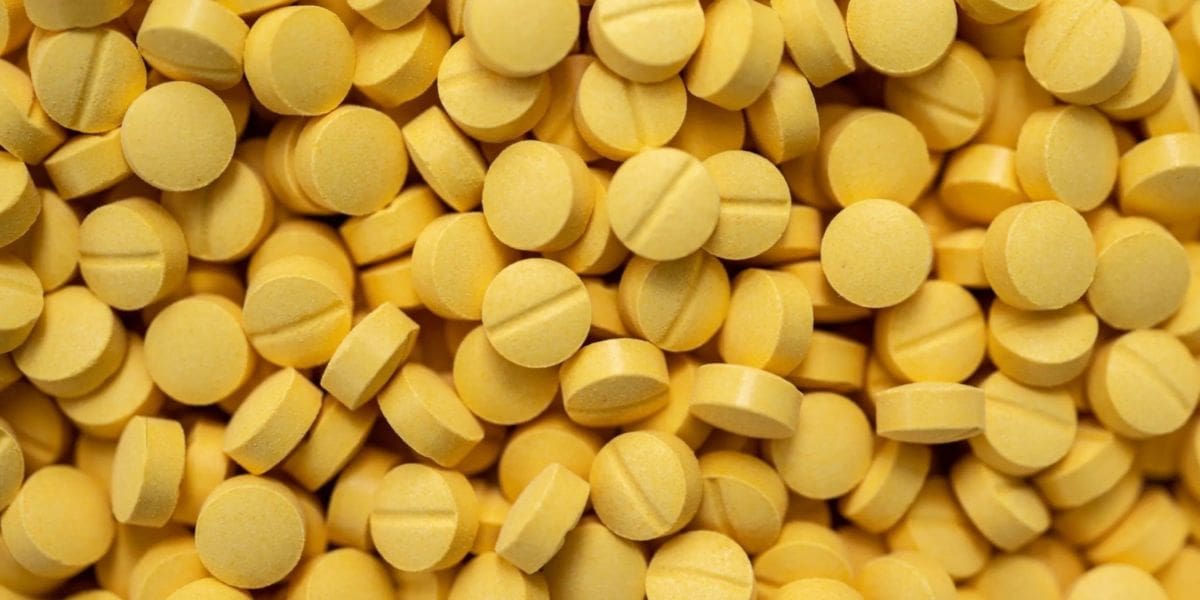Methocarbamol Addiction, Abuse, and Withdrawal


Methocarbamol, commonly known by its brand name Robaxin, is a muscle relaxant often prescribed to alleviate discomfort associated with acute musculoskeletal conditions. Methocarbamol helps relieve pain by blocking signals from nerves to the brain as a central nervous system (CNS) depressant.
Robaxin can help with muscle pain and spasms, but there is a risk of abuse, dependency, and addiction. Understanding the health risks, addiction symptoms, and withdrawal symptoms of methocarbamol can improve the rate of its misuse.
This knowledge can benefit both people and healthcare providers. By being aware of these factors, they can make more informed decisions about the use of methocarbamol. This can lead to better outcomes and safer use of the medication.
The misuse of prescription drugs is a growing issue worldwide, and methocarbamol is no exception. Many people, initially prescribed the medication for legitimate medical reasons, may develop a dependency on its sedative effects. This dependency can turn into a full-blown addiction, leading to severe health and social consequences.
The withdrawal process can be challenging, often requiring medical intervention and comprehensive, evidence-based treatment plans. This can help patients and healthcare providers handle the medication responsibly by educating them about Robaxin abuse, addiction, and withdrawal.
What Is Methocarbamol (Robaxin)?
Methocarbamol is a medicine that helps relax muscles. Doctors use it to treat muscle spasms, injuries, and severe muscle pain. It depletes the central nervous system and reduces muscle tension and discomfort. This medicine is often used with rest, physical therapy, and other ways to relieve pain as part of treatment.
Methocarbamol is typically prescribed for a brief period. This is because long-term use may result in addiction. Although it has benefits in managing acute muscle pain, we cannot overlook its potential for abuse and dependency. People who take higher doses than prescribed are particularly at risk of developing an addiction to methocarbamol.
Methocarbamol is a drug that slows down brain activity, causing drowsiness and reducing anxiety. These effects make it helpful in treating muscle spasms and pain but also contribute to its potential for abuse. People who abuse methocarbamol often seek its sedative effects, which can lead to a cycle of dependency and addiction.

Common Side Effects of Methocarbamol
Like many prescription drugs, methocarbamol has a range of side effects. Common side effects include:
- Drowsiness: Because of its CNS depressant effects, methocarbamol can cause significant drowsiness and sedation
- Dizziness and Blurred Vision: Users often report feeling dizzy and experiencing blurred vision
- Nausea and Vomiting: Gastrointestinal disturbances are also common side effects
- Headache: Some people may experience headaches
- Low Blood Pressure: Methocarbamol can cause a drop in blood pressure, leading to symptoms like dizziness and fainting
These short-term side effects can become more severe in higher doses or with long-term use. Methocarbamol is a drug that slows down the brain and body, making it harder to think and move properly, which can lead to accidents.
Other side effects that may occur less frequently but are still significant include:
- Loss of Consciousness: In extreme cases, the sedative effects of methocarbamol can lead to loss of consciousness
- Allergic Reactions: Some people may experience allergic reactions, such as skin rash, itching, or swelling
- Difficulty Breathing: Respiratory depression can occur, especially when methocarbamol is taken in conjunction with other CNS depressants
Those prescribed methocarbamol need to be closely watched by a healthcare provider to stay safe. This helps prevent harmful side effects and ensures safe use.
Prolonged use of methocarbamol can also lead to more severe side effects and health complications. Some people may need more of the drug over time to get the same benefits, which can lead to a higher chance of overdose. Using the drug for a long time can make it hard to stop without withdrawal symptoms because it can lead to dependency.
Symptoms of Methocarbamol Addiction
Methocarbamol abuse and addiction can develop because of its sedative effects and the euphoria it may cause in higher doses. Symptoms of methocarbamol addiction include:
- Compulsive Use: An overwhelming urge to use the drug, even when it’s not needed for medical reasons
- Tolerance: Needing higher doses to achieve the same effects.
- Withdrawal Symptoms: Experiencing physical or psychological symptoms when not using the drug
- Neglecting Responsibilities: Failing to fulfill obligations at work, school, or home because of drug use
- Continued Use Despite Harm: Using methocarbamol despite knowing it’s causing harm to one’s health or life
Abusing methocarbamol can cause serious health problems, especially affecting the brain and the risk of overdose. Taking too much methocarbamol can be extremely dangerous and may cause extreme drowsiness, passing out, slow breathing, and death. The risk of overdose on methocarbamol increases when it is taken in combination with other central nervous system depressants, such as alcohol or benzodiazepines.
Recognizing the signs of methocarbamol use and addiction early can be crucial for seeking timely intervention and preventing severe health consequences. Some additional indicators of addiction include:
- Behavioral Changes: Uncharacteristic mood swings, secrecy, or withdrawal from social activities
- Financial Problems: Spending excessive amounts of money to obtain the drug
- Physical Health Decline: Noticeable weight loss, fatigue, and neglect of personal hygiene
If you or someone you know is exhibiting these symptoms, it is important to seek help from a healthcare professional or addiction specialist.
People with a history of substance use disorders may be more susceptible to developing an addiction to methocarbamol. Healthcare providers need to screen patients before prescribing methocarbamol to mitigate the risk of addiction.
Methocarbamol Withdrawal Symptoms
Methocarbamol helps with muscle pain and spasms. However, it can be addictive and abused if taken in high doses or for a long time.
Be cautious when using this medication. Understanding the withdrawal symptoms is essential for safe use. For those struggling with addiction, seeking professional treatment can provide the necessary support and resources for a successful recovery.
When a person who is addicted to methocarbamol stops using the drug, they may experience withdrawal symptoms. These can include:
- Anxiety and Irritability: Increased nervousness and irritability are common during withdrawal
- Insomnia: Difficulty sleeping or maintaining sleep.
- Muscle Pain and Spasms: A resurgence of muscle pain and spasms as the drug’s effects wear off
- Nausea and Vomiting: Gastrointestinal symptoms may reappear.
- Sweating and Tremors: Physical symptoms such as sweating and trembling can occur
Withdrawal from methocarbamol can be uncomfortable and challenging, making it important to seek medical assistance when discontinuing the drug. A doctor can help you through withdrawal by giving you medication for symptoms and suggesting therapy for psychological dependence.
The severity of withdrawal symptoms can vary depending on factors such as the duration of methocarbamol use, the dosage, and the presence of any co-occurring mental health conditions or substance use disorders. In severe cases, withdrawal can lead to complications that require hospitalization.
Withdrawal symptoms can vary in intensity but generally include:
- Physical Symptoms: These may involve muscle aches, sweating, tremors, and gastrointestinal disturbances such as nausea, vomiting, and diarrhea
- Psychological Symptoms: Anxiety, depression, irritability, and mood swings are common during withdrawal
- Sleep Disturbances: Insomnia and other sleep-related issues often occur during withdrawal, making it difficult for people to get adequate rest
Medical supervision can help manage withdrawal symptoms and provide support during this challenging phase.

Robaxin Addiction Treatment
Treating Robaxin addiction requires an intensive approach that addresses both the physical and psychological aspects of addiction.
White Oak Recovery Center provides structured, evidence-based addiction treatment programs. These programs help people focus on their recovery. They have been proven to be very effective. These programs offer medical treatment, therapy, and support to help with addiction in all areas of life.
For people with a history of substance abuse or those who have developed a severe addiction to methocarbamol, an inpatient or residential rehab program may be the best fit. At White Oak Recovery Center, we provide 24/7 medical supervision and support in our treatment programs. This ensures that residents receive thorough care during the crucial initial stages of recovery.
Family and friend support can also play a vital role in the recovery process. Encouragement and understanding from loved ones can help people stay committed to their treatment plans and avoid relapse. Education for family members about addiction and its effects can further enhance the support network.
Therapies like cognitive-behavioral therapy (CBT), family therapy, and 12-step facilitation therapy (TSF) are important for treating addiction at WORC. They assist individuals in understanding why they are addicted, learning how to cope, and rebuilding their lives without drugs.
A life free from substance use is possible. Our compassionate treatment specialists are eager to help you live a life rooted in recovery. Reach out today.

Am I covered for addiction treatment?
Your insurance may cover treatment. Call now for an entirely free and confidential assessment. Recovery starts with a phone call.

- Preston, K.L., et al., “Evaluation of the Abuse Potential of Methocarbamol.” J Pharmacol Exp Ther., Mar. 1989.
- Sibrack, Jeffrey, et al., “Methocarbamol.” StatPearls: National Library of Medicine, May 2024.
- “Methocarbamol.” National Institute of Diabetes and Digestive and Kidney Diseases, Jan. 2017.
- “Methocarbamol.” MedlinePlus: National Library of Medicine, Aug. 2017.
- Ferslew, K.E., et al., “A Fatal Interaction of Methocarbamol and Ethanol in an Accidental Poisoning.” J Forensic Sci., Mar. 1990.
Medical Disclaimer:







